3: Energy Decarbonization and Sustainable Industry
Filters
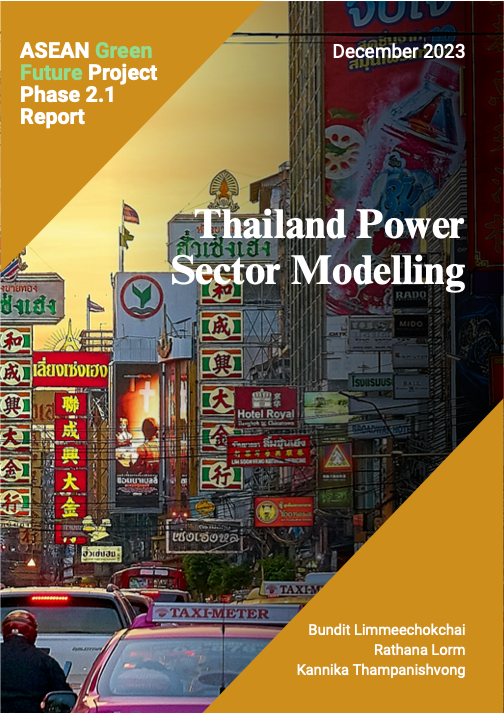
20 Dec, 2023
ASEAN Green Future (AGF) is a multi-year project involving the Sustainable Development Solutions Network, ClimateWorks Centre and research groups in Southeast Asia. The Phase 1 report of each country team presented priorities and actions to date, and key technology and policy opportunities to further advance domestic climate action. Phase 2 uses modelling to quantitatively assess the different decarbonisation pathways for Southeast Asia.
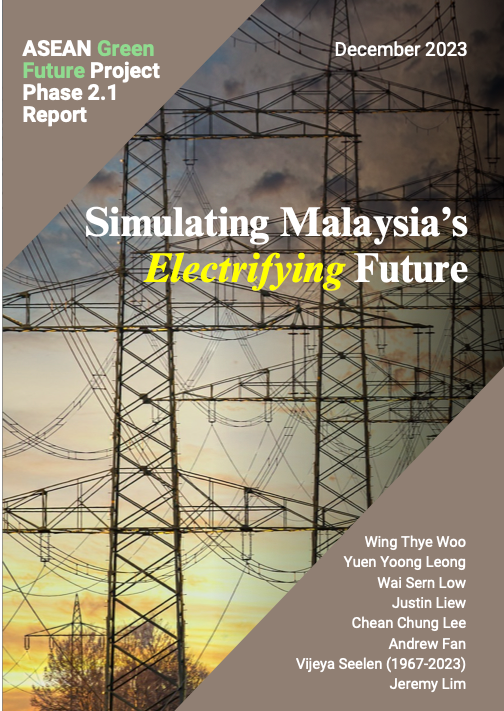
20 Dec, 2023
ASEAN Green Future (AGF) is a multi-year project involving the Sustainable Development Solutions Network, ClimateWorks Centre and research groups in Southeast Asia. The Phase 1 report of each country team presented priorities and actions to date, and key technology and policy opportunities to further advance domestic climate action. Phase 2 uses modelling to quantitatively assess the different decarbonisation pathways for Southeast Asia.
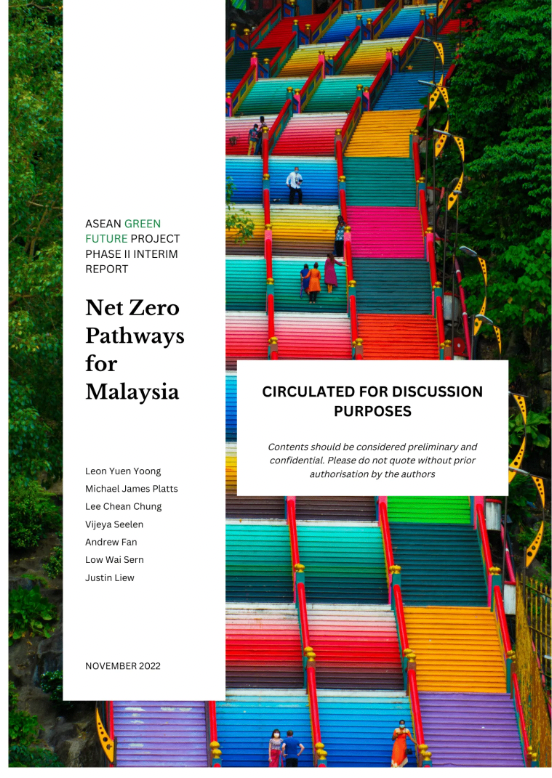
By Info
•
11 Nov, 2022
ASEAN Green Future (AGF) is a multi-year project involving the Sustainable Development Solutions Network, ClimateWorks Centre and research groups in Southeast Asia. AGF started with an online meeting of seven country teams on 23 February 2021. Phase 1 of AGF was completed in in time for presentation COP26 held in November 2021. Phase 1 presented an overview of the current greenhouse gas emissions situation in each country and the climate actions undertaken; and identified the different pathways and technology options to achieve net zero emissions. This interim report on Malaysia presents the main findings of the country team in 2022, after the completion of its Phase 1 report last year.
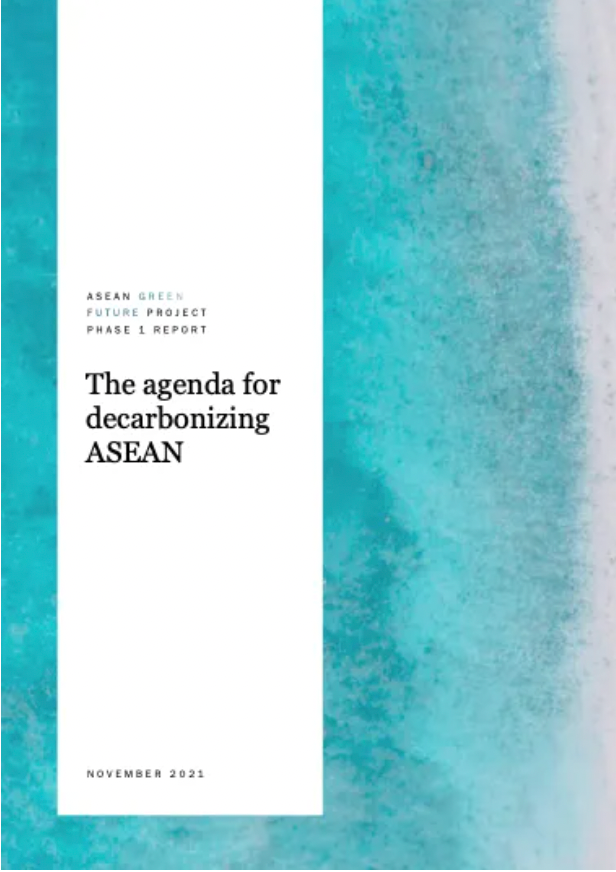
By Info
•
02 Nov, 2021
ASEAN Green Future (AGF) is a multi-year project involving the Sustainable Development Solutions Network, ClimateWorks Centre and research groups in Southeast Asia. The Phase 1 report of each country team presents priorities and actions to date, and key technology and policy opportunities to further advance domestic climate action. The Phase 1 regional report situates the region’s path to low-carbon transition within a global context using the country reports and other studies.
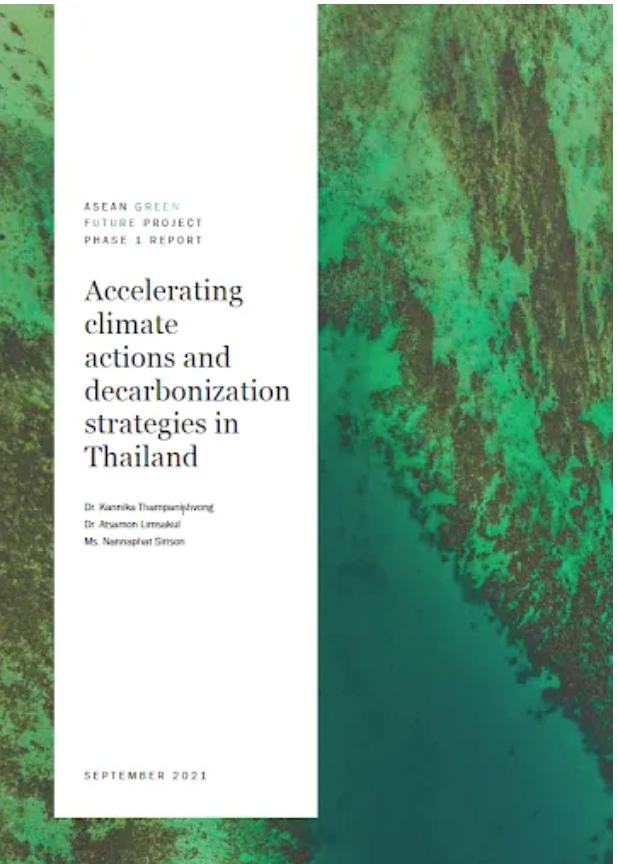
By Info
•
08 Sep, 2021
ASEAN Green Future (AGF) is a multi-year project involving the Sustainable Development Solutions Network, ClimateWorks Centre and research groups in Southeast Asia. The Phase 1 report of each country team presents priorities and actions to date, and key technology and policy opportunities to further advance domestic climate action. The Phase 1 regional report situates the region’s path to low-carbon transition within a global context using the country reports and other studies.
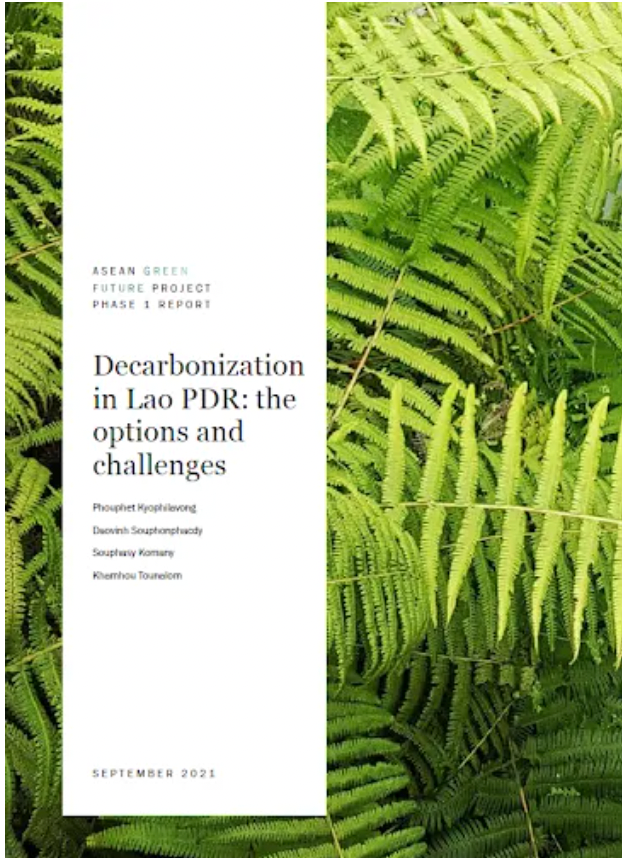
By Info
•
08 Sep, 2021
ASEAN Green Future (AGF) is a multi-year project involving the Sustainable Development Solutions Network, ClimateWorks Centre and research groups in Southeast Asia. The Phase 1 report of each country team presents priorities and actions to date, and key technology and policy opportunities to further advance domestic climate action. The Phase 1 regional report situates the region’s path to low-carbon transition within a global context using the country reports and other studies.
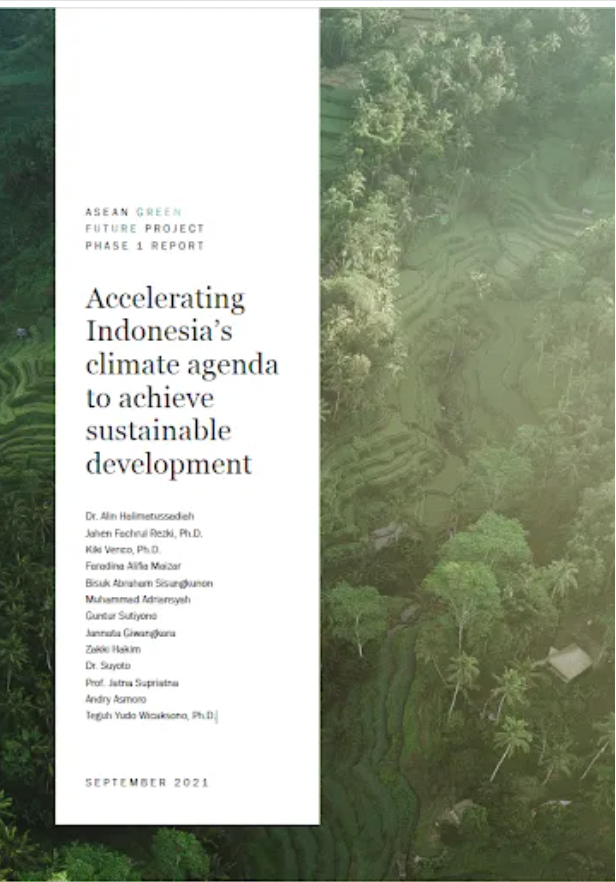
By Info
•
08 Sep, 2021
ASEAN Green Future (AGF) is a multi-year project involving the Sustainable Development Solutions Network, ClimateWorks Centre and research groups in Southeast Asia. The Phase 1 report of each country team presents priorities and actions to date, and key technology and policy opportunities to further advance domestic climate action. The Phase 1 regional report situates the region’s path to low-carbon transition within a global context using the country reports and other studies.
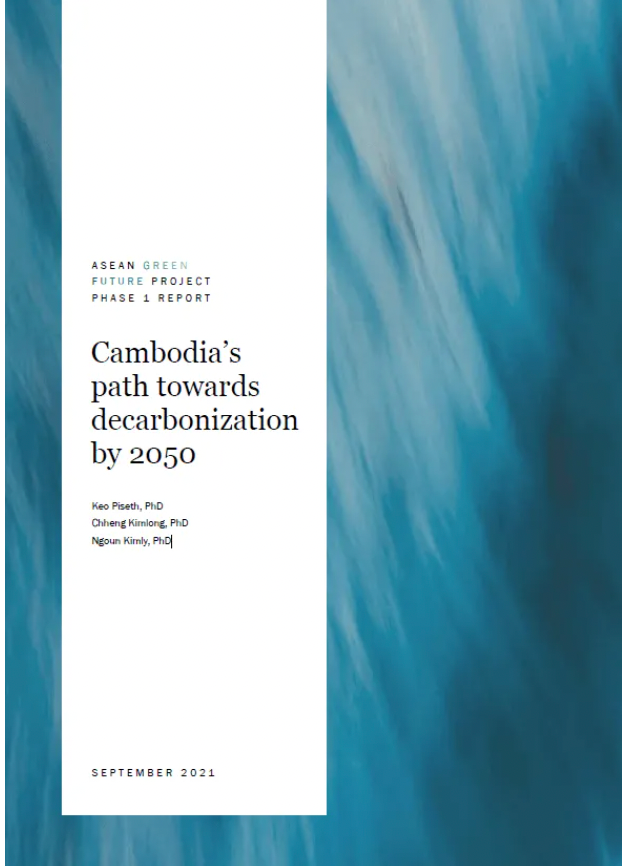
By Info
•
08 Sep, 2021
ASEAN Green Future (AGF) is a multi-year project involving the Sustainable Development Solutions Network, ClimateWorks Centre and research groups in Southeast Asia. This report has been developed through a synthesis of existing research and knowledge in Cambodia to build the economic and technical case for decarbonization. Seven country teams, including Cambodia, have been established across the Association of Southeast Asian Nations (ASEAN) to lead similar work. This report investigates the feasibility of net zero by 2050 and the potential for more ambitious country commitments at Conference of the Parties (COP) 26
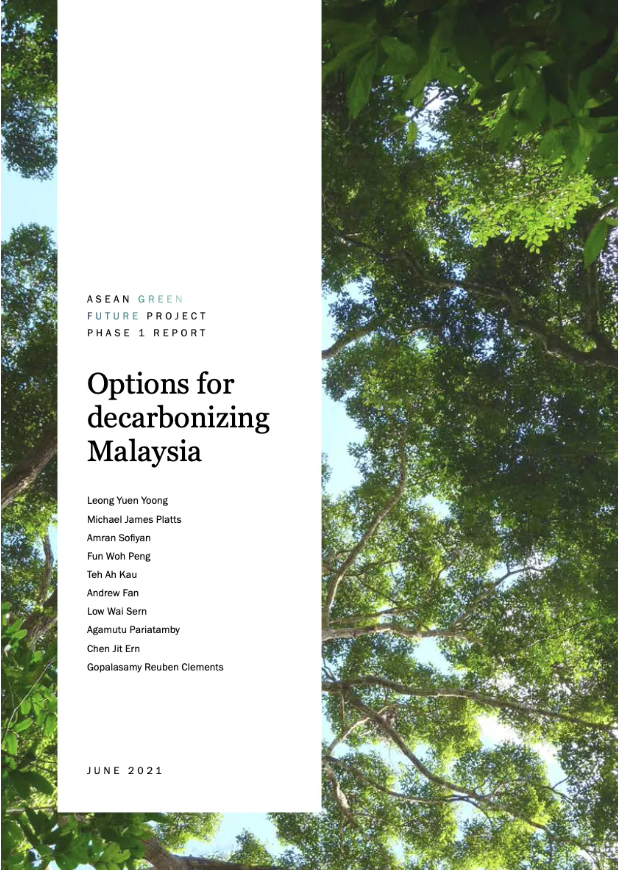
By Info
•
01 Jun, 2021
ASEAN Green Future (AGF) is a multi-year project involving the Sustainable Development Solutions Network, ClimateWorks Centre and research groups in Southeast Asia. The Phase 1 report of each country team presents priorities and actions to date, and key technology and policy opportunities to further advance domestic climate action. The Phase 1 regional report situates the region’s path to low-carbon transition within a global context using the country reports and other studies.
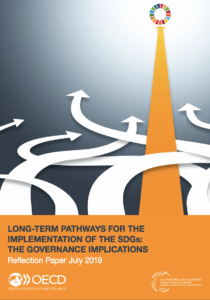
By jay
•
16 Jul, 2019
The 2030 Agenda and the Sustainable Development Goals adopted in 2015 are a universal plan of action for humankind. Yet, four years after their adoption many countries are not yet on track to meeting the SDGs by 2030. Independent assessments by the OECD (2019), SDSN (Sachs et al. 2018; Sachs et al. 2019), and others show that no country has achieved all SDGs. Trend analyses also suggest that no country is on track towards meeting all the goals by 2030. For many goals, particularly relating to social inclusion and environmental sustainability, some countries are actually moving further away from the targets. Meeting the SDGs will require sustained long-term investments and coherent policies. Transformations towards achieving the SDGs will require greater levels of public and private investments in all of the SDGs, including human capital (health and education), social protection, clean infrastructure and industry, urban management, and environmental protection (IPBES 2019; TWI2050 2018). Success will also require greater efficiency in investments and above all coherent policies and governance frameworks to ensure that the long-term goals can be met. Governments need to develop actionable strategies and leverage all available governance tools in order to reach the transformative goals of the 2030 agenda. Evidence shows a number of important steps to achieving these changes, in particular: translating the SDGs into quantitative, time-bound national objectives and benchmarks; devising long-term strategies for meeting them; and aligning policy frameworks and governance mechanisms with these strategies (OECD forthcoming, SDSN, 2015a). Whole-ofgovernment and whole-of-society approaches are key to building ownership for large-scale and long-term changes in areas such as governance, infrastructure, and technologies. Countries should define such transformations in ways that best help them achieve the SDGs considering local needs. As one example, the SDSN has proposed six broad SDG transformations (Sachs et al. 2019) (Annex 1). Countries may organize SDG implementation in other ways depending on their specific needs and context. This reflection paper explores how strategic design and public management practices and procedures can be leveraged to help achieve the long-term pathways towards the successful implementation of the SDGs.
SIGN UP FOR SDSN UPDATES
Get our latest insights, opportunities to engage with our networks, and more.
SDSN mobilizes global scientific and technological exertise to promote practical solutions for sustainable development, including the implementation of the Sustainable Development Goals (SGDs) and the Paris Climate Agreement.
Paris
19 rue Bergère
75009 Paris
France
+33 (0) 1 84 86 06 60
New York
475 Riverside Drive
Suite 530
New York NY 10115 USA
+1 (212) 870-3920
Kuala Lumpur
Sunway University
Sunway City Kuala Lumpur
5 Jalan Universiti
Selangor 47500
Malaysia
+60 (3) 7491-8622
Designed by
Northeast Kingdom Online. Powered by
NEKO|360.
